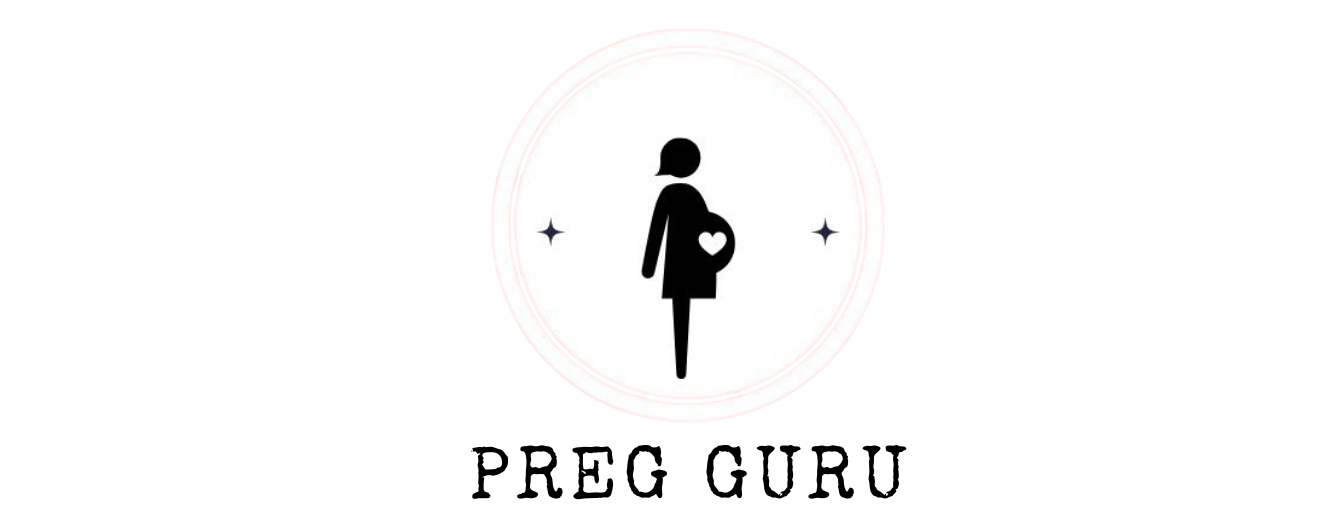When it comes to the beautiful yet challenging journey of motherhood, the question “When does breastfeeding get easier?” is a common and valid inquiry. Navigating the initial stages of breastfeeding can be both a rewarding and demanding experience for new mothers. Understanding the nuances of feeding frequency, growth spurts, and the natural evolution of breastfeeding can significantly impact the overall journey. From the early days of establishing a latch to the later stages of breastfeeding beyond the first year, this exploration aims to shed light on the factors that contribute to the ease of breastfeeding over time.

Table of Contents
How frequently should I plan to feed?
- In the early weeks, newborns typically feed every 2-3 hours, with more frequent feeds during growth spurts.
- As your baby grows, feeding patterns may become more predictable, allowing for a gradual adjustment.
Why does my infant want to feed so frequently
Frequent feeding is entirely normal and may indicate growth, comfort-seeking, or cluster feeding. Trusting your baby’s cues and providing comfort through nursing fosters a strong bond.
Is it necessary to have a set breastfeeding routine?
- Newborns benefit from on-demand feeding, fostering a responsive and natural approach.
- A flexible routine based on your baby’s cues is more beneficial than a rigid schedule, ensuring your baby’s needs are met.
How can I tell if my breast milk is enough to satisfy my baby?
- A content and thriving baby, consistent weight gain, and ample wet diapers are positive indicators of sufficient milk supply.
- Regular check-ups with your pediatrician provide reassurance about your baby’s overall health.
At what point should my baby reach their initial birth weight again?
Most newborns regain their birth weight within the first two weeks. Monitoring weight gain during well-baby check-ups ensures your baby is on a healthy trajectory.
What Is Cluster Feeding?
Cluster feeding, common in the evenings, involves more frequent feeds for a period. This normal behavior supports both bonding and increased milk supply.
When does Breastfeeding Get Easier?
Breastfeeding gradually becomes more manageable as you and your baby establish familiarity and routine. Patience, support, and seeking guidance when needed are key during the initial stages.
Challenges of Breastfeeding
Addressing initial challenges such as latch issues or engorgement is essential. Seeking guidance from a lactation consultant can provide practical solutions and support.
First Ten Days of Breastfeeding
In the initial ten days of breastfeeding, it is crucial to focus on establishing a feeding routine that aligns with your baby’s cues. Newborns often display signs of hunger, such as rooting or sucking on their fists. Responding promptly to these cues helps ensure your baby receives nourishment when needed.
Additionally, paying attention to the latch is essential during this period. A proper latch is key to effective breastfeeding, minimizing discomfort for the mother and facilitating adequate milk transfer to the baby. If you encounter difficulties with the latch, seeking guidance from a lactation consultant or healthcare provider can be beneficial.
Due to the small size of newborn stomachs, frequent feedings are necessary to meet their nutritional requirements. The question “When does breastfeeding get easier?” often finds its answer in adapting to these early routines and cues, fostering a powerful bond between mother and child.
Breastfeeding After 2 Months
Breastfeeding after two months continues to be an essential aspect of infant care. By this time, both the mother and baby have likely become more accustomed to the breastfeeding routine. It is important to note some key considerations during this phase:
- Established Routine: At two months, a predictable breastfeeding routine emerges, but staying flexible to evolving baby cues ensures a harmonious feeding experience.
- Growth and Development: In early months, breast milk adapts for growing infants, providing tailored nutrition crucial for health and development. Continuing breastfeeding ensures ongoing support.
- Bonding and Comfort: Breastfeeding creates a unique bond, offering comfort, warmth, and security beyond nutrition. This emotional connection enhances overall well-being for both mother and baby.
- Introducing Pumping: Introducing pumping after two months enables mothers to provide breast milk when away, fostering flexibility in the feeding routine.
- Responsive Feeding: Responsive feeding is key, as mothers tune into baby cues for hunger and fullness, ensuring a healthy breastfeeding relationship and sufficient milk intake.
Breastfeeding From 6 Months
Continuing breastfeeding at the six-month mark is a valuable and significant part of infant care. Here are some key points to consider during this stage:
- Introduction of Solid Foods: Around six months, introduce solids alongside breastfeeding. While breast milk remains crucial, nutrient-rich foods complement the baby’s growing nutritional needs.
- Nutritional Continuity: Breast milk sustains vital nutrients and immune support for the baby’s health. Even with complementary foods, it remains a crucial part of the infant’s diet.
- Maintaining Bonding: Breastfeeding fosters an emotional bond, enhancing the child’s sense of security and comfort.
- Responsive Feeding: At this stage, noting hunger and fullness cues is crucial. Responsive feeding to preferences and signs of readiness ensures a positive breastfeeding experience for both mother and baby.
- Breast Milk Adaptations: As the baby grows, breast milk dynamically adapts, offering essential nutrients and antibodies to support continuous development.
- Extended Breastfeeding Benefits: Continuing breastfeeding beyond six months, if comfortable for both, brings health benefits: immune support, reduced infection risk, and potential long-term advantages for mother and child.
- Weaning Considerations: Some moms opt for extended breastfeeding, while others consider gradual weaning. Timing this personal decision varies for each mother and baby.
As always, consulting with healthcare professionals or lactation consultants can provide personalized guidance and support based on the specific needs of both the mother and the infant during the breastfeeding journey. For those wondering, “When does breastfeeding get easier?” seeking expert advice ensures a tailored approach for both baby and mother.
Breastfeeding From 12 Months
Here are some key aspects to consider during this stage for those curious about When does breastfeeding get easier?
- Nutritional Support: Beyond the first year, breast milk remains a vital source of nutrition, supplementing the baby’s varied diet with essential nutrients, immune factors, and a unique balance of proteins, fats, and carbohydrates.
- Immune System Boost: Breastfeeding beyond 12 months offers sustained immune support through antibodies in breast milk, protecting the child against infections and promoting overall health..
- Emotional Bonding: Beyond nutrition, breastfeeding remains a bonding experience, fostering emotional connection, comfort, security, and a special closeness between mother and child.
- Flexibility and Convenience: Breastfeeding is a convenient and flexible feeding option, readily available and soothing for the child, especially during illness or stress.
- Responsive Feeding: As the child grows, responsive feeding to cues for hunger, comfort, or reassurance remains crucial. Adapting to evolving needs contributes to a positive breastfeeding experience.
- Weaning Decisions: Around 12 months, gradual weaning can be a personal decision influenced by the mother’s and child’s comfort levels. Approach with patience and sensitivity for a smooth transition.
Ultimately, the decision to continue breastfeeding beyond 12 months is a personal one. As long as both mother and child are comfortable and thriving, extended breastfeeding can contribute to the well-being of both.
When can I expect breastfeeding to become more manageable?
Breastfeeding typically becomes easier after the first few weeks as you and your baby establish a routine, enhancing comfort and familiarity.
What are common challenges in the early stages of breastfeeding?
Challenges like latch issues and engorgement are normal, but seeking support and guidance can address them effectively.
How often should I feed my newborn, considering the phrase ‘when does breastfeeding get easier’?
Feed your newborn on demand, as frequent feeding fosters a responsive and natural approach, contributing to a smoother breastfeeding experience.
Is it normal for my baby to want to feed frequently?
Yes, frequent feeding is normal and can indicate growth spurts, comfort-seeking, or cluster feeding, all essential for your baby’s development.
Can a breastfeeding schedule make the process easier for both me and my baby
Creating a flexible routine based on your baby’s cues is more beneficial than a strict schedule, enhancing the ease of breastfeeding.
How can I ensure my milk is satisfying my baby’s needs?
A content and thriving baby, steady weight gain, and sufficient wet diapers indicate that your milk is meeting your baby’s needs effectively.
What is the significance of a let-down in breastfeeding?
A let-down is a natural response that facilitates milk flow, triggered by your baby’s sucking, ensuring effective and satisfying feeds.
When should I expect my baby to regain their birth weight through breastfeeding?
Most newborns regain their birth weight within the first two weeks, emphasizing the effectiveness of breastfeeding for healthy weight gain.
What is cluster feeding, and when does it typically occur?
Cluster feeding, common in the evenings, involves more frequent feeds for a period, contributing to bonding and boosting milk supply.
How does breastfeeding evolve beyond the initial challenges?
Breastfeeding becomes more comfortable and enjoyable after two months, establishing a routine and understanding your baby’s feeding patterns.
Conclusion:
The journey of breastfeeding is an evolving process, and the question “When does breastfeeding get easier?” finds its answer in the gradual progression from the initial challenges to a more comfortable and rewarding experience. As mothers embrace the on-demand feeding approach, navigate growth spurts, and adapt to their baby’s cues, the ease of breastfeeding becomes increasingly apparent. From the first ten days to the later stages, understanding the significance of cluster feeding, let-downs, and the natural evolution of breastfeeding fosters a profound bond between mother and baby. For more information, visit our website pregguru.com.




Your point of view caught my eye and was very interesting. Thanks. I have a question for you.
Noodlemagazine This is really interesting, You’re a very skilled blogger. I’ve joined your feed and look forward to seeking more of your magnificent post. Also, I’ve shared your site in my social networks!
Smartcric I really like reading through a post that can make men and women think. Also, thank you for allowing me to comment!
Mountsinai Great information shared.. really enjoyed reading this post thank you author for sharing this post .. appreciated
FinTech ZoomUs I’m often to blogging and i really appreciate your content. The article has actually peaks my interest. I’m going to bookmark your web site and maintain checking for brand spanking new information.
Aroma Sensei This is really interesting, You’re a very skilled blogger. I’ve joined your feed and look forward to seeking more of your magnificent post. Also, I’ve shared your site in my social networks!
SocialMediaGirls I appreciate you sharing this blog post. Thanks Again. Cool.
Thank you for your sharing. I am worried that I lack creative ideas. It is your article that makes me full of hope. Thank you. But, I have a question, can you help me? https://www.binance.com/bn/register?ref=UM6SMJM3
Family Dollar Pretty! This has been a really wonderful post. Many thanks for providing these details.
Family Dollar Very well presented. Every quote was awesome and thanks for sharing the content. Keep sharing and keep motivating others.
allegheny county real estate Hi there to all, for the reason that I am genuinely keen of reading this website’s post to be updated on a regular basis. It carries pleasant stuff.
Tech to Trick This was beautiful Admin. Thank you for your reflections.
Simplywall This was beautiful Admin. Thank you for your reflections.
Ny weekly I do not even understand how I ended up here, but I assumed this publish used to be great
I read this piece of writing fully on the
topic of the resemblance of most recent and previous technologies, it’s remarkable article.
Feel free to visit my web blog … selir69